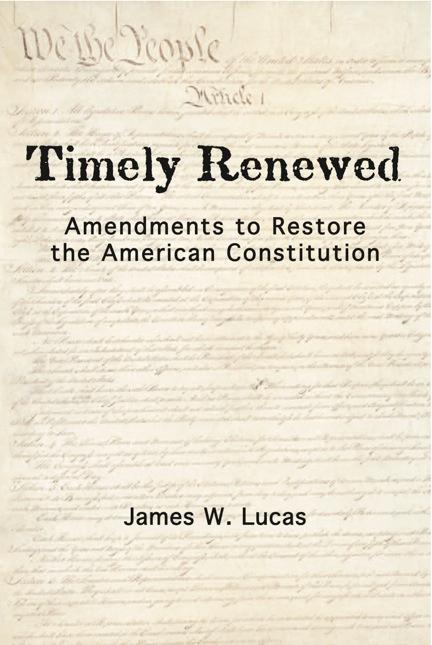Of course, the “amendment amendment” would have to be added to the Constitution under the existing Article V procedures. If Congress can not be trusted to pass constitutional amendments limiting its governmental power, why would two-thirds of both houses approve a constitutional amendment which will end Congress’ de facto monopoly on initiating constitutional amendments? Here a historic alliance is the answer. Constitutionalists are not the only Americans who are enraged at the Washington power monopoly. There are many sincere Americans who consider themselves “progressives” who recognize that the current Washington power establishment is dominated by corporate special interests. They also call for constitutional amendments to correct the system. For example, Ralph Nader has called for a constitutional amendment which would provide that corporations are not “persons” entitled to the same constitutional protections as natural persons.
The “amendment amendment” is content neutral. By breaking the congressional monopoly on initiating amendments, it opens the amendment process to popular participation, which is one of the most important values of sincere progressives. An alliance of constitutionalists and sincere progressives could command the political and popular clout to force two-thirds of Congress to initiate the “amendment amendment.” Once out to the States for ratification, it should be quite possible to reach the three-fourths threshold in state legislatures no matter their political makeup since the “amendment amendment” will vest them with a significant new constitutional status.
Now, many on both sides of this alliance may be nervous about the proposed amendments the other side might introduce with this new procedure. However, I would suggest a broader view. Almost all Americans are peripheral subjects of our modern imperial center in Washington, D.C. We are faced with major issues about the nature of our nation. Every bit as much as constitutionalists, sincere progressives believe that those decisions should be made by the people.
The “amendment amendment” is not about what those decisions are. It is only about assuring that the decisions are made at the level closest to the people, the States, where grassroots input is most effective. Any one who believes in democratic governance should support this.
Indeed, the “amendment amendment” may well be the purest test available to separate those politicians who truly believe in government “of the people, by the people and for the people” from those who really prefer government “of the Supreme Court, by the federal bureaucracy, and for the Washington power elites.” Its only effect is to move control of our Constitution away from the Supreme Court and Congress in Washington, D. C. and to the people in their States.


